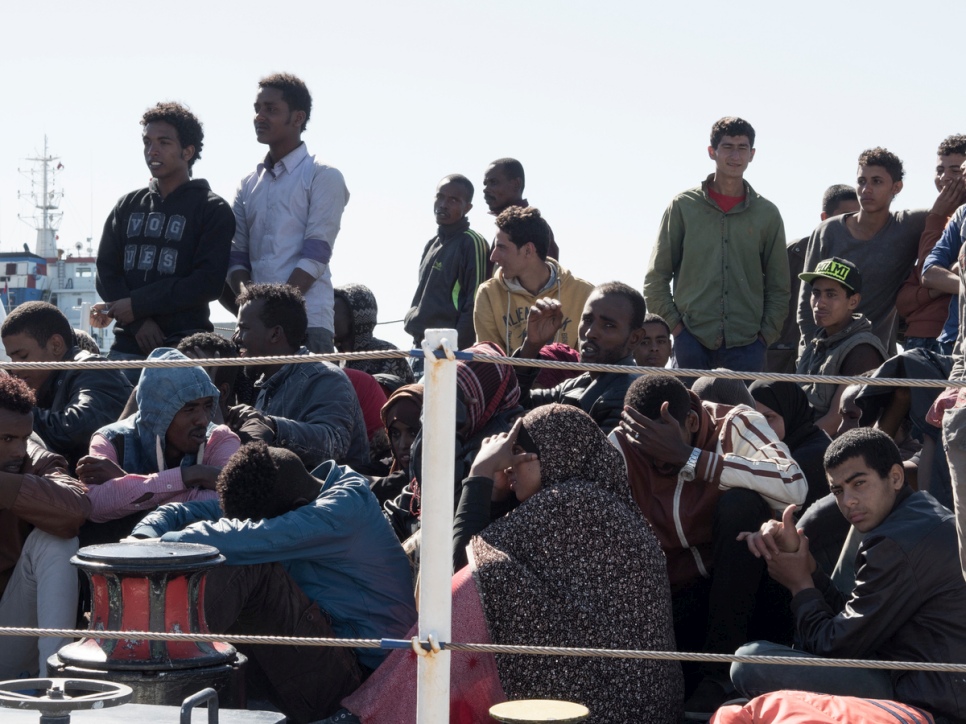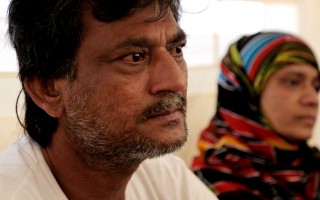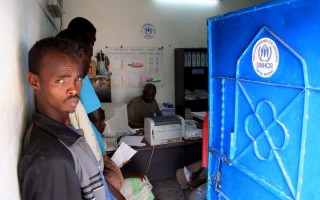
Refugees and migrants fleeing poverty and social unrest from Egypt, Somalia, Yemen, Sudan, Eritrea and Sierra Leone arrive in Port Augusta, Sicily, in this May 2016 file photo. © UNHCR/Patrick Russo
This is a summary of what was said by UNHCR spokesperson William Spindler on Yemen – to whom quoted text may be attributed – at today’s press briefing at the Palais des Nations in Geneva.
Despite conflict and rapidly deteriorating humanitarian conditions, more than 100,000 people have so far this year risked their lives on the high seas to reach Yemen from the Horn of Africa by boat. This underscores the need for urgent support in countries of origin and transit to discourage people from attempting this deadly crossing.
A total 105,971 people have made the journey as of mid-November, mainly across the Gulf of Aden, according to latest figures from UNHCR and partners. Most people came from Ethiopia and Somalia (88,667 and 17,293 respectively). This year’s crossings compare to 92,446 to Yemen recorded last year and just 25,898 in 2006, despite heightened conflict and insecurity in Yemen in the past two years.
Most migrants, refugees and asylum seekers from Ethiopia and Somalia embark from the coastal towns of Obock in Djibouti and Bossaso in Puntland, Somalia and cross the Red Sea or Gulf of Aden to Yemen. Many of those making the crossing may be deceived or ill-informed about the severity of the conflict in Yemen or hope to reach the Gulf States, rather than stay in poverty or face persecution and insecurity at home.
UNHCR and other humanitarian agencies have been warning against the perilous Horn of Africa crossings which see people undergo risky journeys only to face conflict, abuse and exploitation on arrival. UNHCR has received reports of physical and sexual abuse, deprivation of food and water, abduction, extortion, torture and forced labour by smugglers and criminal networks as well as arbitrary arrest, detention and deportation.
Prolonged conflict and insecurity has also facilitated the proliferation of trafficking and extortion networks targeting new arrivals. Women and children are also at particular risk of sexual violence and trafficking. So far this year, at least 79 people attempting the crossing to Yemen have been reported dead or missing at sea
For new arrivals seeking international protection, access to asylum systems in Yemen is restricted and individuals may be unable to register their asylum applications or have their presence documented by the authorities in-the country.
Yemen migration
Yemen has historically been a country of migration and transit from the Horn of Africa to the Arabian Peninsula and beyond. Mixed migration movements into Yemen include refugees, asylum seekers, trafficked persons and migrants who either intend to transit and continue their journey to the Gulf States or seek asylum in Yemen, escaping persecution or conflict.
A few people also have also reportedly said they intend to reach Europe as their final destination, departing from Yemen to Sudan, then onwards by road to Libya or Egypt to cross by sea to Europe.
Twenty months into the conflict, the situation in Yemen remains highly precarious, with new arrivals and locals alike facing risks of hardship, danger and death. The conflict has resulted in mass displacement of more than 3.1 million individuals, 2.1 million of whom still remain displaced. More than 80 per cent of the population is in need of humanitarian assistance. All this makes Yemen ill-equipped to receive and host new refugees and migrants or those seeking to transit.
Because of this, in December, UNHCR intends to launch a regional information campaign in countries of origin and transit, including Ethiopia and Somalia, warning of the dangers and risks inherent in crossings to and arrival in Yemen.
UNHCR is appealing for more urgent regional support to address conditions prompting movements from countries of origin and to actively pursue solutions for refugees in Yemen. UNHCR’s operations in Yemen and the Horn of Africa remain critically underfunded. Despite massive humanitarian needs and ongoing displacement, UNHCR’s response to the situation in Yemen and neighbouring countries for 2016 remains only 44 per cent funded (US$75 million).
Article originally published at unhcr.org





